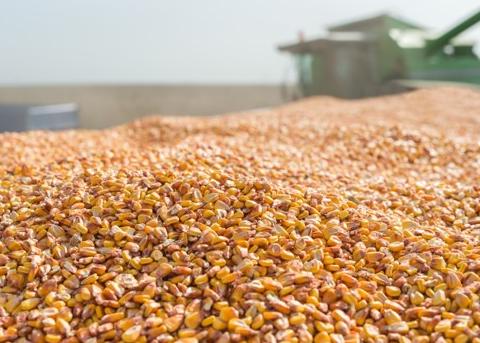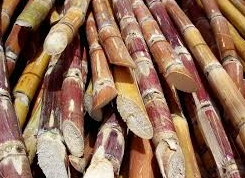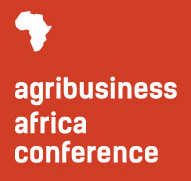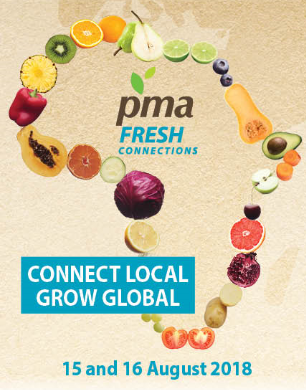The 28th World Conference of the International Food and Agribusiness Management Association (IFAMA) was held in Buenos Aires, Argentina, from 23 to 27 June 2018. Dr John Purchase, CEO of Agbiz, and Sifiso Ntombela, Head: International Trade and Investment at Agbiz, participated in various events at the IFAMA World Conference. At IFAMA, executives from private sector, academics and postgraduate students meet to debate the major challenges and opportunities confronting the agro-food systems across the world. To this end the theme of the conference was "Disruptive Innovation: Better Business, Management, Science, and Government". Please click to peruse.
|

At his maiden State of the Nation Address in February, President Ramaphosa announced that a jobs summit would be convened in 2018 to elevate the key challenge of unemployment - with a special emphasis on youth unemployment - to the top of the national agenda. The aim of the summit is not limited to creating formal employment opportunities, but rather creating viable economic opportunities, including the creation of new enterprises and self-employment opportunities. The summit seeks to address the constraints to job creation, affirm targets and commitments from different entities and solicit proposals for specific projects. To this end, government has enlisted the help of social partners at Nedlac where Agbiz will play a leading role through Business Unity South Africa (BUSA). Read the linked article
by Theo Boshoff, Agbiz Head: Legal Intelligence.
|

Trade and Industry Minister Rob Davies, recently released the 10th iteration of the Industrial Policy Action Plan (10th IPAP). In addition to providing an economic analysis of prevailing global and domestic economic conditions relevant to industrial policy, time-bound action plans and programmes across a range of sectors, and listing the key constraints to an optimal industrial strategy, IPAP 2018 provides a summarised Legacy Report covering progress over the 10 years of its existence. The occasion also gives us a useful opportunity to reflect on the implementation of IPAP in the period since the adoption of the National Industrial Policy Framework (NIPF) and the experience of implementing successive, updated action plans over the course of one decade. Industrial policy has the over-arching objective of enhancing the productive capabilities of the economy. In other words, industrial policy aims to increase the economy's ability to produce more and more complex and high value-added products with greater efficiency. In simple terms, this means to produce more value, using less resources. Building the economy's industrial capabilities is a continuous and long-term endeavour and technologies continuously evolve. Agro-processing (page 127), as well as other related agriculture and forestry industrial sub-sectors, are well covered in the 10th IPAP.
to peruse.
|
The Organisation for Economic Co-operation and Development (OECD) this past week released its Agricultural Policy Monitoring and Evaluation Report for 2018. South Africa features on pages 179 and 180 and the OECD's analysis provides fair insight as to how South Africa's agricultural policy is globally perceived. Please click to peruse.
|
Vincent Smith, chairperson of the Parliamentary Committee that will review the "property clause", Section 25 of the Constitution, said the purpose of the public hearings is an opportunity for the public to answer the question as to whether the Constitution, Section 25, is an impediment to the land reform programme. And if it is indeed an impediment, what changes do they desire. He said the committee would also want to hear from the other side of the spectrum, from those who argue the Constitution in its current form is not an impediment. The committee would then, on the basis of the arguments presented, make a recommendation to Parliament.
Click to read more about the role of the committee and the public hearings.

|
Some of the successful land reform programmes in the world took place in countries where the beneficiaries were those who occupied the land at the time of the reform. This may be true for the provision of secure tenure to occupiers living under legally insecure tenure arrangements in communal areas, however, the context is quite different for the redistribution and restitution programmes in South Africa. Wandile Sihlobo, Agbiz economist, and Prof Johan Kirsten,
director of the Bureau for Economic Research at Stellenbosch University, provide more insight in the linked article which was published in Business Day on 25 June 2018.
|

Wandile Sihlobo recently
posted
a graph on Twitter showing the past 100 years of South African agricultural employment, which has of course been declining for some time, in line with the international trend. The feedback from a couple of interactions suggested that the agricultural sector is a nonstarter when it comes to job creation. While that sentiment has some validity, it's worth noting that many developing and developed countries still have a huge chunk of people working in their agricultural sectors - even though this may have declined significantly as a share of overall employment and in absolute numbers. Read
Wandile Sihlobo's full column which was published in
Business Day
on 21 June 2018.
|
Almost every Sunday afternoon I make a couple of phone calls to a number of farmers across the country to catch up on regional news and agricultural conditions. This past weekend I followed that routine, with a number of farmers briefing me about summer crop harvest progress. Feedback from Western Cape folks indicated an appreciation for heavy rains, which according to the South African Weather Service might be more frequent over the next three months. The Eastern Cape farmers brought to my attention something I have not been thinking about of late - the possible expansion of winter wheat plantings to new regions in the country.
Read Agbiz economist Wandile Sihlobo's full column which first appeared on
Business Day
on 05 July 2018.
|

Since the collapse of the Zimbabwe agricultural sector after the land reform programme in the early 2000s, the country has been one of the key markets for South African maize. On average, South Africa's maize exports to Zimbabwe accounted for nearly a third of overall maize exports between 2001 and 2017, according to Trade Map data. This came to a halt in October, when Zimbabwe banned maize imports after a recovery in domestic production to 2.2 million tons - its largest harvest in 23 years. However, this season's production estimates point to a lower harvest. Click to read Wandile Sihlobo's full column which was published in the Business Times on 1 July 2018.
|
|
INTERNATIONAL TRADE AND INVESTMENT
|

The members of the South African Sugar Association (SASA), which includes sugarcane farmers and millers, have applied to the International Trade Administration Commission (ITAC) for a 51% increase in the sugar tariff (dollar-based reference price of US$ 856.32/ton) to help the industry against the increasing sugar imports. Parallel to the tariff application, SASA members have staged protests in parliament and government offices in Pretoria to voice-out their suffering with increasing sugar imports. The trade data shows that South Africa has become a net importer of sugar, recording a negative trade balance of 189 169 tons per annum on average, over the past seven years. Sifiso Ntombela, Agbiz Head: International Trade and Investment provides more information in the linked article.
|
The International Fund for Agricultural Development (IFAD) 2017 Annual Report have now been published: learn about IFAD's work, investments and results. You can also learn more about their advocacy efforts to keep the needs of rural communities at the top of the international development agenda. IFAD invests its full portfolio in rural areas of developing countries, where 80% of the world's poorest people live and work.
Read
t
he stories about the rural women and men IFAD empowers, and get the facts and figures they share regularly with their member states and partners.
|
Fourth consecutive fuel hike will hit the consumer
With the fuel hike implemented on Wednesday the cost of producing and transporting agriculture commodities will come under pressure as over 80% of grain is transported by road. These costs will eventually be passed on to the consumer up the value chain as businesses struggle to absorb the added costs. Click to read commentary by Paul Makube, senior agricultural economist at FNB AgriBusiness.
|
News from the Grain Farmer Development Association
Click to read the June 2018 newsletter of the Grain Farmer Development Association (GFADA).
|
Investing in youth is like planting a seed
Investing in youth is like planting a seed which will grow into a tree that will benefit the whole society. That is how Kobus Steenekamp, business and commercial manager of Monsanto South Africa, explains why the seed development company is so heavily invested in the youth of the country. Monsanto has a youth development thrust which includes bursaries, internships, learnership programmes, assistance for students who want to attend agricultural congresses, boosts interest in biotechnology at schools and universities, sponsors agricultural clubs at universities, and assists with the building of bathrooms at schools and maintaining of school buses.
|
The first ever Potatoes South Africa (PSA) Enterprise Development Farmer of the Year was announced at the gala dinner of the PSA Transformation Symposium held at the Saint George Hotel in Pretoria in June. Through an audited evaluation process, Phophi Raletjena from Vivo was announced as the PSA Enterprise Development Farmer of the Year. Raletjena started out with 5 ha and has expanded to 30 ha. He plants Mondial under irrigation.
|
|
4th Annual Competition and Economic Regulation (ACER) week
16-20 July 2018 | Johannesburg
More information
More information»
FW Agribusiness Africa Conference

18-19 July 2018 | Emperors Palace
Theme: Partnerships for equitable trade
Enquiries: Marianna du Plessis,
[email protected]
International Soy for Human Health Conference
1-3 August 2018 | St George Hotel and Conference Centre | Pretoria
More information
PMA Fresh Connections Southern Africa
Conference and Trade show

15-16 August, 2018 |
CSIR | Pretoria
Registration now open
PMA Women's Fresh Perspectives:
Register now for the Women's Fresh Perspectives event which includes a luncheon with keynote
speaker
Adv. Thuli Madonsela
@ThuliMadonsela3
This is a limited seating event!
AGRI 5 Commodities Workshop and Expo
20-21 September 2018
| East London Show Grounds
Contact info: 011 056 6856
Agbiz Grain Symposium
21 August 2018 | Pretoria
FERTASA Soil Fertility and Plant Nutrition Symposium
21 August 2018 | CSIR | Pretoria
Enquiries:
[email protected]
56th Annual Conference of the Agricultural Economics Association of South Africa (AEASA)
25-27 September 2018 | Lord Charles Hotel | Somerset West
Media release
Science Forum 2018
Theme: Win more, lose less: Capturing synergies between SDGs through agricultural research
10-12 October 2018| Stellenbosch
|
Being a member of Agbiz provides various benefits and opportunities
- Agbiz is the only organisation that serves the broader and common over-arching business interests of agribusinesses in South Africa.
- Agbiz addresses the legislative and policy environment on the many fronts that it impacts on the agribusiness environment.
- Agbiz facilitates considerable top-level networking opportunities so that South African agribusinesses can play an active and creative role within the local and international organised business environment.
- Agbiz research provides sector-specific information for informed decision-making.
- Agbiz newsletter publishes members' press releases and member product announcements.
|
|
Third-party website links to this newsletter
|
|
The Agbiz Newsletter may contain a few links to websites that belong to third parties unrelated to us. By making these links available, we are not endorsing third-party websites, their content, products, services or their events. Agbiz seeks to protect the integrity of its newsletter and links used in it, and therefore welcomes any feedback.
|
|
| |
|
|